About
This virtual event, held on 6th and 7th February 2022, is of particular interest for the scientific and medical community, government health officials, academics and delegates from other health related NGOs.
The meeting was hosted by Lou Irving and Robert Booy.
See the program for the event here.
This event is accredited with ACRRM (ID: 24829).
NOTE: The 11 hours of PDP are only available for those who attended the live sessions.

Event Co-Chairs:
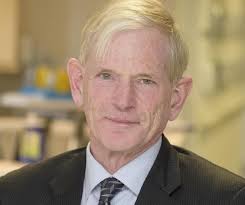
Associate Professor Lou Irving is a Respiratory Physician at the Peter MacCallum Cancer Centre, the Director of Respiratory and Sleep Medicine and Director of Clinical Training at the Royal Melbourne Hospital. Associate Professor Irving has clinical, teaching and research interests in lung cancer, advanced bronchoscopy and COPD and has published over 250 scientific papers.
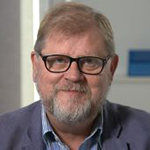
Professor Robert Booy is an infectious diseases paediatrician. Since 2005 he has worked at the University of Sydney in the fields of vaccinology, epidemiology and infectious diseases. He is currently a Senior Professorial Fellow at the University of Sydney Children’s Hospital Westmead Clinical School. From 2005 to 2019 he held the position of Head of Clinical Research at the National Centre for Immunisation Research and Surveillance (NCIRS) at Westmead Children’s Hospital and remains an Affiliate of NCIRS.
Session 1 - Pandemics: past, present and future
Presentation 1: Epidemiology, public health & modelling
Presented by: Ben Cowling
Download Ben’s presentation PDF here
Presentation 2: Immunogenetics
Presented by: Vanessa Bryant
The recording for this presentation is unavailable.
Presentation slides available on request for delegates only.
(info@immunisationcoalition.org.au)
Presentation 3: Pandemic proofing our future
Presented by: Kirsty Short
This talk commences 27 minutes into the recording. Simply move your curser to the correct time if you wish to skip the previous presentation.
Download Kirsty’s presentation PDF here
Question and answer session
The discussion commences at 46 minutes and 27 seconds into the above recording.
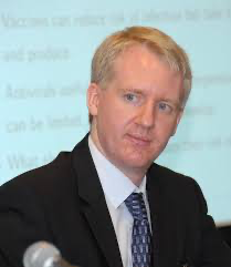
Professor Benjamin Cowling joined the School of Public Health (SPH) at HKU in 2004. Prior to moving to Hong Kong, he graduated with a PhD in medical statistics at the University of Warwick (UK) in 2003 and spent a year as a postdoc at Imperial College London (UK). Prof. Cowling has been the Head of the Division of Epidemiology and Biostatistics since 2013. He is responsible for teaching the introductory module in epidemiology on the MPH curriculum and is the chairman of the Departmental Research Postgraduate Committee. Prof. Cowling is co-director of the WHO Collaborating Centre for Infectious Disease Epidemiology and Control at HKU SPH.
 Dr Vanessa Bryant is a Laboratory Head at The Walter & Eliza Hall Institute of Medical Research in Melbourne. Vanessa completed her PhD in immunology at the Garvan Institute of Medical Research in Sydney with Professor Stuart Tangye, before performing her postdoctoral research with Professor Jean-Laurent Casanova at The Rockefeller University in New York.
Dr Vanessa Bryant is a Laboratory Head at The Walter & Eliza Hall Institute of Medical Research in Melbourne. Vanessa completed her PhD in immunology at the Garvan Institute of Medical Research in Sydney with Professor Stuart Tangye, before performing her postdoctoral research with Professor Jean-Laurent Casanova at The Rockefeller University in New York.
Vanessa’s research aims to solve the underlying genomic and functional causes of rare primary immunodeficiencies, focused on the heterogeneous disorder Common Variable Immunodeficiency (CVID), both as a primary immunodeficiency in itself, and as a model for other complex immune disorders. Her work with the Immunology Flagship programs of Melbourne and Australian Genomics implements early, accurate gene-based diagnoses to allow precision therapeutic interventions. Dr Bryant’s research combines functional genomics with quantitative immunology to transform the way we approach and treat rare and complex immune disorders.
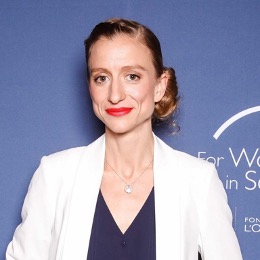
Dr Kirsty Short is an Australia Research Council DECRA research fellow in the School of Chemistry and Molecular Biosciences at the University of Queensland in Brisbane Australia. She completed a PhD in 2013 at the Department of Microbiology and Immunology at the University of Melbourne. In 2013 she was also awarded an NHMRC CJ Martin Early Career Fellowship to go to the Netherlands to work in the Department of Virosciences at Erasmus Medical Centre. She returned to Australia at the end of 2015 and in 2017 she established her independent research group at the University of Queensland. She works on many different aspects of influenza virus pathogenesis, understanding how the flu virus affects different animal species, investigating the role of the immune system in severe flu infections and the interactions between the flu and chronic medical conditions such as diabetes and obesity.
Session 2 - COVID-19 vaccination
Presentation 1: Should we vaccinate children against COVID?
Presented by: Shamez Ladhani
Download Shamez’s presentation PDF here
Presentation 2: COVID-19 boosters
Presented by: Matthew Snape
This talk commences 15 minutes and 30 seconds into the recording. Simply move your curser to the correct time if you wish to skip the previous presentation.
Download Matthew’s presentation PDF here
Presentation 3: Co-administration of COVID and flu vaccines
Presented by: Rajeka Lazarus
This talk commences 38 minutes and 4 seconds into the recording. Simply move your curser to the correct time if you wish to skip the previous presentations.
Download Rajeka’s presentation PDF here
Question and answer session
The discussion commences at 58 minutes and 46 seconds into the above recording.
 Dr Ladhani is a paediatric infectious disease specialist at St Georges University of London. He is a consultant epidemiologist at Public Health England where he is the clinical lead for a number of vaccine preventable infectious diseases, including haemophilus influenzae, streptococcus pneumoniae, and neisseria meningitidis.
Dr Ladhani is a paediatric infectious disease specialist at St Georges University of London. He is a consultant epidemiologist at Public Health England where he is the clinical lead for a number of vaccine preventable infectious diseases, including haemophilus influenzae, streptococcus pneumoniae, and neisseria meningitidis.
 Matthew Snape, MBBS FRCPCH MD, is a Professor in General Paediatrics and Vaccinology at the Oxford Vaccine Group, University of Oxford Department of Paediatrics and the NIHR Oxford Biomedical Research Council. He is also a Jenner Investigator and an NIHR Senior Investigator.
Matthew Snape, MBBS FRCPCH MD, is a Professor in General Paediatrics and Vaccinology at the Oxford Vaccine Group, University of Oxford Department of Paediatrics and the NIHR Oxford Biomedical Research Council. He is also a Jenner Investigator and an NIHR Senior Investigator.
Prof. Snape’s principal areas of research relate to vaccines against meningococcal, pneumococcal, influenza, RSV and Ebola virus disease. He is the director of the NIHR funded National Immunisation Schedule Evaluation Consortium (NISEC), which has been responsible for delivery of multiple studies evaluating the use of mixed schedules of COVID-19 vaccines and the ‘What’s the STORY’ seroprevalence study evaluating rates of COVID-19 infection in children.
 Rajeka Lazarus is a practising clinician who has an interest in adult vaccination.
Rajeka Lazarus is a practising clinician who has an interest in adult vaccination.
Rajeka has been working on clinical vaccine trials since 2006 and over the past 18 months she has been leading the COVID-19 vaccine studies in the West of England.
Session 3 - Theory vs reality
Presentation 1: COVID immune response
Presented by: Jennifer Juno
Download Jennifer’s presentation PDF here
Presentation 2: Modelling for beginners
Presented by: Patricia Campbell
This talk commences 22 minutes and 54 seconds into the recording. Simply move your curser to the correct time if you wish to skip the previous presentation.
Download Patricia’s presentation PDF here
Presentation 3: What is happening on the ground, despite the modelling
Presented by: Allen Cheng
This talk commences 40 minutes and 6 seconds into the recording. Simply move your curser to the correct time if you wish to skip the previous presentations.
Download Allen’s presentation PDF here
Question and answer session
The discussion commences at 1 hour, 4 minutes and 44 seconds into the above recording.
 Dr Jennifer Juno is a T cell immunologist with a particular interest in T follicular helper cells and unconventional T cells. Originally hailing from Canada, she was awarded her PhD in 2014 from the University of Manitoba, where she studied unconventional T cell dysfunction during HIV infection. Following a 2-year post-doctoral fellowship at the Public Health Agency of Canada, she moved to Melbourne to join the Peter Doherty Institute for Infection and Immunity. Jennifer now leads a team focused on harnessing specific T cell subsets to improve immunity against human infectious diseases.
Dr Jennifer Juno is a T cell immunologist with a particular interest in T follicular helper cells and unconventional T cells. Originally hailing from Canada, she was awarded her PhD in 2014 from the University of Manitoba, where she studied unconventional T cell dysfunction during HIV infection. Following a 2-year post-doctoral fellowship at the Public Health Agency of Canada, she moved to Melbourne to join the Peter Doherty Institute for Infection and Immunity. Jennifer now leads a team focused on harnessing specific T cell subsets to improve immunity against human infectious diseases.
 Trish’s PhD research at The University of Melbourne into the drivers of pertussis spread and strategies to protect vulnerable infants was pivotal to the Australian Government’s decision to reinstate the 18-month pertussis booster on the National Immunisation Program. Internationally, this work has been translated into international infectious diseases policy through engagement with the World Health Organization. With a keen interest in training the next generation of researchers, Trish lectures Infectious Diseases Modelling at The University of Melbourne and supervises student projects across multi-disciplinary fields including infectious disease modelling, social epidemiology and modelling of mobility patterns.
Trish’s PhD research at The University of Melbourne into the drivers of pertussis spread and strategies to protect vulnerable infants was pivotal to the Australian Government’s decision to reinstate the 18-month pertussis booster on the National Immunisation Program. Internationally, this work has been translated into international infectious diseases policy through engagement with the World Health Organization. With a keen interest in training the next generation of researchers, Trish lectures Infectious Diseases Modelling at The University of Melbourne and supervises student projects across multi-disciplinary fields including infectious disease modelling, social epidemiology and modelling of mobility patterns.
 Prof Allen Cheng is an infectious diseases physician. He is Professor of Infectious Diseases Epidemiology and is Director of the Infection Prevention and Healthcare Epidemiology unit at Alfred Health. He has a PhD (Flinders University), a Master of Public Health (Monash University) and a Master of Biostatistics (University of Queensland). He has previously worked as an infectious diseases and general physician in Darwin and Geelong, and has worked in remote communities in the Top End of Australia, and in Papua New Guinea, Thailand, the United States and Finland. In 2020, Prof. Cheng became the Victorian Deputy Chief Health Officer during the COVID-19 pandemic.
Prof Allen Cheng is an infectious diseases physician. He is Professor of Infectious Diseases Epidemiology and is Director of the Infection Prevention and Healthcare Epidemiology unit at Alfred Health. He has a PhD (Flinders University), a Master of Public Health (Monash University) and a Master of Biostatistics (University of Queensland). He has previously worked as an infectious diseases and general physician in Darwin and Geelong, and has worked in remote communities in the Top End of Australia, and in Papua New Guinea, Thailand, the United States and Finland. In 2020, Prof. Cheng became the Victorian Deputy Chief Health Officer during the COVID-19 pandemic.
Session 4 - Other considerations
Presentation 1: Natural history of coronavirus and what they do
Presented by: Stanley Perlman
Download Stanley’s presentation PDF here
Presentation 2: Interface between mind and body
Presented by: Alex Holmes
This talk commences 32 minutes and 51 seconds into the recording. Simply move your curser to the correct time if you wish to skip the previous presentation.
Download Alex’s presentation PDF here
Presentation 3: Chronic complication of COVID, influenza, EBV
Presented by: Jane Sinclair
This talk commences 51 minutes and 46 seconds into the recording. Simply move your curser to the correct time if you wish to skip the previous presentations.
Download Jane’s presentation PDF here
Question and answer session
The discussion commences at 1 hour and 13 minutes into the above recording.
 Dr. Perlman received his Ph.D. in Biophysics from M.I.T., Cambridge, Massachusetts and his M.D. from the University of Miami, Miami, Florida. He is a member of the VRBPAC of the FDA and the COVID-19 Advisory Committee of the ACIP (Advisory Committee on Immunization Practices).
Dr. Perlman received his Ph.D. in Biophysics from M.I.T., Cambridge, Massachusetts and his M.D. from the University of Miami, Miami, Florida. He is a member of the VRBPAC of the FDA and the COVID-19 Advisory Committee of the ACIP (Advisory Committee on Immunization Practices).
His current research efforts are focused on coronavirus pathogenesis, including virus-induced demyelination and the Severe Acute Respiratory Syndrome (SARS), the Middle East Respiratory Syndrome (MERS) and COVID-19. His laboratory has developed several novel animal models useful for studying pathogenesis and evaluating vaccines and antiviral therapies. His studies are directed at understanding why aged patients and mice developed more severe disease than younger individuals after infection with SARS-CoV or SARS-CoV-2 and also on why there is a male predominance in patients with more severe disease after infection with SARS-CoV, MERS-CoV or SARS-CoV-2. He and his colleagues demonstrated that transduction of mice with an adenovirus expressing the human receptor for MERS-CoV, DPP4, rendered them sensitive to infection, providing the first rodent model useful for studying MERS. Similar approaches have been used to develop several mouse models for COVID-19. Among other topics, his research is now focusing on the loss of sense of smell (anosmia) and taste (ageusia) observed in patients with COVID-19.

Alex Holmes is an Associate Professor in the Department of Psychiatry, University of Melbourne and Head of consultation-liaison psychiatry at Royal Melbourne Hospital. His research is focussed on the psychiatric sequelae of physical illness, including serious physical injury, pain, multiple sclerosis and brain tumours. He has also held a long term clinical attachment with the Homeless Outreach Psychiatric Service which covers the Melbourne CBD.

Jane graduated from a Bachelor of Biomedical Science and Bachelor of Science (Hons) at the University of Queensland in 2020 and has since gone on to start her PhD there. Her honours project focused on the role of pre-existing chronic disease, especially diabetes mellitus, in the cardiac complications of SARS-CoV-2 and influenza virus infections, and her current work focuses on the long-term cardiovascular complications of COVID-19.
Session 5 - Other respiratory diseases
Presentation 1: Influenza – where is it and what can we expect?
Presented by: Ian Barr
Download Ian’s presentation PDF here
Pneumococcal Disease: Implications of NIP recommendations
Presented by: Peter Eizenberg
This talk commences 25 minutes and 28 seconds into the recording. Simply move your curser to the correct time if you wish to skip the previous presentation.
Download Peter’s presentation PDF here
Presentation 3: RSV
Presented by: Gemma Saravanos
This talk commences 47 minutes and 33 seconds into the recording. Simply move your curser to the correct time if you wish to skip the previous presentations.
Download Gemma’s presentation PDF here
Question and answer session
The discussion commences at 1 hour, 8 minutes and 47 seconds into the above recording.
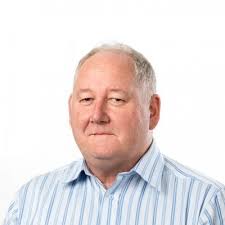
Professor Ian Barr is Deputy Director of the World Health Organization (WHO) Collaborating Centre for Reference and Research on Influenza. Ian has had over 35 years’ experience in biological research and development in academic institutions and at CSL Limited on various topics such as vaccine development, mucosal immunology, adjuvants, cancer therapeutics, immune system development and diagnostics. Ian joined the Centre in 2000 and has served as Deputy Director since 2005. He is an Honorary Senior Research Fellow at Federation University and holds an honorary position at the University of Melbourne.

Director of ‘Doctors of Ivanhoe’. GP of 30+ years’ experience with special interest in Immunisation. Current member of Advisory Committees for Immunisation Coalition & AusVaxSafety. Former member of NIC, ACIR Management & other national immunisation committees & Exec Director NEVDGP.
 Gemma is a healthcare researcher with a background in nursing, immunisation and public health. Her research seeks to better understand the burden of severe acute respiratory infection in different groups and how this can be reduced through infection prevention and control, immunisation, communication and education. A focus of her work has been to understand the epidemiology of respiratory syncytial virus (RSV) in the Australian population to inform future prevention strategies.
Gemma is a healthcare researcher with a background in nursing, immunisation and public health. Her research seeks to better understand the burden of severe acute respiratory infection in different groups and how this can be reduced through infection prevention and control, immunisation, communication and education. A focus of her work has been to understand the epidemiology of respiratory syncytial virus (RSV) in the Australian population to inform future prevention strategies.
Session 6 - Safety & treatment
Presentation 1: Vaccine safety
Presented by: Kristine Macartney
Download Kristine’s presentation PDF here
Presentation 2: TTS
Presented by: Anoop Enjeti
This talk commences 24 minutes and 38 seconds into the recording. Simply move your curser to the correct time if you wish to skip the previous presentation.
Download Anoop’s presentation PDF here
Presentation 3: Therapeutics
Presented by: Steven Tong
This talk commences 44 minutes and 36 seconds into the recording. Simply move your curser to the correct time if you wish to skip the previous presentations.
Download Steven’s presentation PDF here
Question and answer session
The discussion commences at 1 hour, 7 minutes and 38 seconds into the above recording.

Kristine Macartney is a paediatrician and infectious disease specialist. She is a medical graduate of the University of NSW and has almost 20 years of experience in vaccinology. She has experience working in the USA at the Children’s Hospital of Philadelphia where she was a founding member of the US Vaccine Education Center. Her Doctorate of Medicine was on rotavirus infection, in particular the mucosal immune response to novel vaccine candidates. She is interested in all aspects of vaccine preventable disease research, particularly policy development, vaccine safety and prevention of viral diseases. She is the Senior Editor of The Australian Immunisation Handbook. Kristine has a clinical appointment at The Children’s Hospital at Westmead as a Staff Specialist in Infectious Diseases and Microbiology and a conjoint academic appointment as Professor in the Discipline of Child and Adolescent Health, University of Sydney.
 Associate Professor Anoop Enjeti is an early career clinician researcher and clinical haematologist with dual clinical fellowships (Physician & Pathology), a masters in epidemiology/biostatistics, a clinical doctorate (MD) and a PhD. postgraduate physician qualifications from the UK Royal College of Physicians and specialist haematology from the Royal College of Pathologists of Australasia (2006). His physician and specialist haematology training has spanned across India, UK, Singapore and Australia including specialist training in genetics and molecular genetics where he contributed to a high impact publication outlining geographical variations in leukemia genetics.
Associate Professor Anoop Enjeti is an early career clinician researcher and clinical haematologist with dual clinical fellowships (Physician & Pathology), a masters in epidemiology/biostatistics, a clinical doctorate (MD) and a PhD. postgraduate physician qualifications from the UK Royal College of Physicians and specialist haematology from the Royal College of Pathologists of Australasia (2006). His physician and specialist haematology training has spanned across India, UK, Singapore and Australia including specialist training in genetics and molecular genetics where he contributed to a high impact publication outlining geographical variations in leukemia genetics.
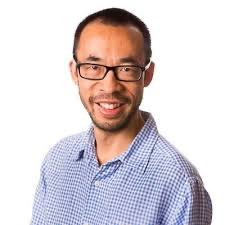
Associate Professor Steven Tong is an infectious diseases physician with the Victorian Infectious Diseases Service and Co-Head of the Translational and Clinical Research and Indigenous Health cross-cutting disciplines at the Doherty Institute. He spent 10 years in Darwin before moving to Melbourne to join the Doherty Institute in 2016. His research interests include skin pathogens (Staphylococcus aureus, Group A Streptococcus), hospital infections, Indigenous health, viral hepatitis and influenza. His passion is to apply cutting edge science to address clinically driven questions.
